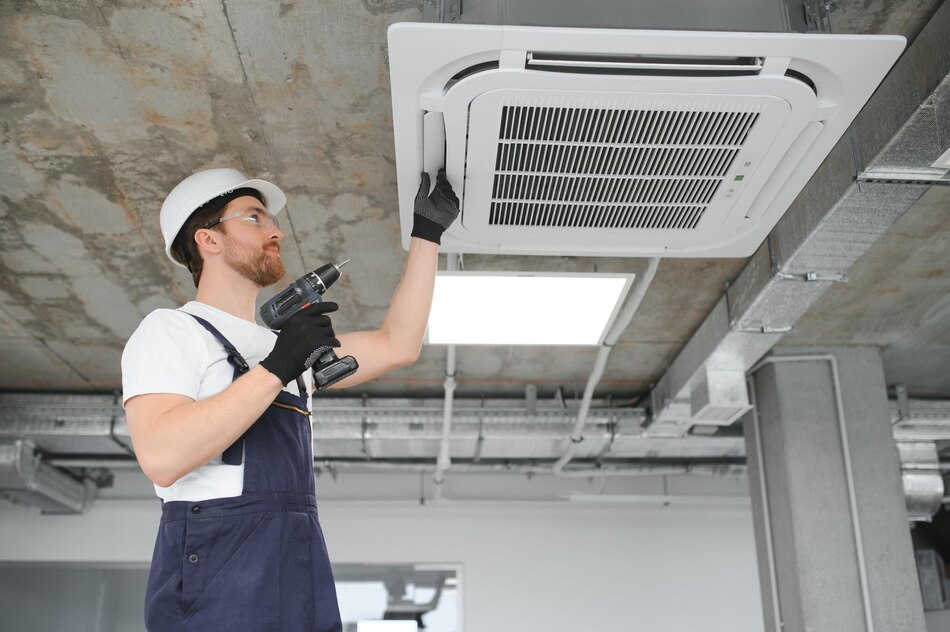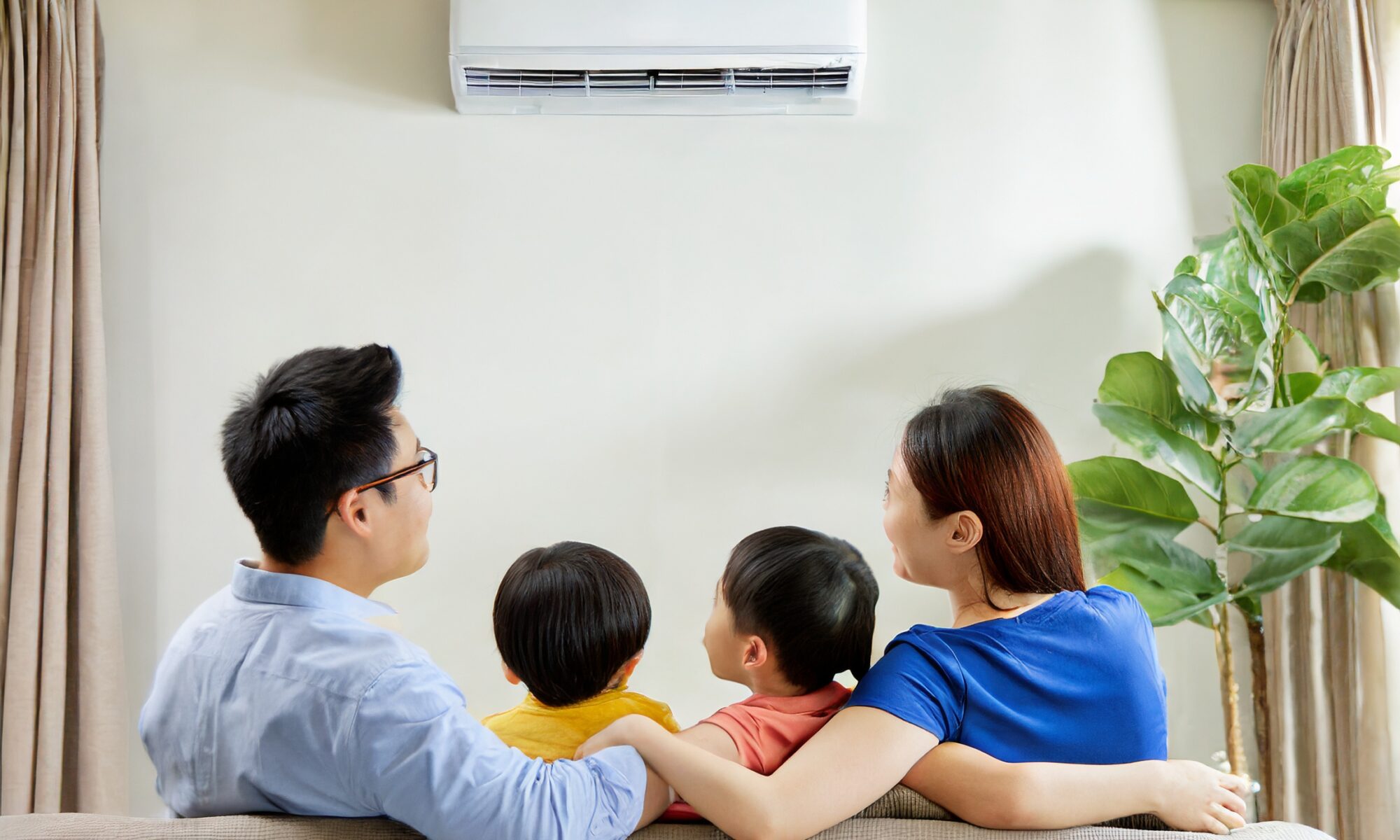As a homeowner or business owner in Singapore, it’s common to rely on air conditioning to stay cool and comfortable, especially during the humid months. Aircons are a significant investment, and having one break down can be stressful. What if your aircon breaks down and is no longer under warranty? Should you repair it, replace it, or let it go? Learn more about how you can address the issue without breaking the bank.
Understanding Aircon Warranties
Before diving into what to do when your aircon is no longer under warranty, it’s essential to understand what the warranty covers. Aircon warranties typically cover the following:
- Parts replacement: If any major components like the compressor, evaporator, or condenser malfunction within the warranty period, they will usually be repaired or replaced at no extra cost.
- Labor costs: Many aircon manufacturers cover the labor charges for repairs during the warranty period.
- Service fees: Regular maintenance and servicing may also be included for the duration of the warranty.
However, once the warranty expires, the cost of repairs and replacements falls entirely on the homeowner. This can lead to expensive out-of-pocket costs, especially if major components need to be replaced.
What Are Your Options After Warranty Expiry?
If a warranty no longer covers your aircon, you still have several options for maintaining or replacing it. Here’s a breakdown of the most practical steps to follow:
1. Check for Common Problems First
Before you call in a technician, it’s important to check for common issues that you might be able to resolve yourself. Some issues could be simple and not require professional intervention, saving you a costly repair bill. Common aircon issues include:
- Dirty air filters: Dirty filters can restrict airflow and reduce cooling efficiency. If your aircon is blowing warm air, cleaning or replacing the filters is the first step.
- Clogged drainage line: If you notice water pooling around the aircon unit, the drainage line might be clogged. Clear this using a wet/dry vacuum or flushing it with warm water and vinegar.
- Incorrect thermostat settings: Sometimes, the issue is as simple as incorrect settings on the thermostat. Make sure it’s set to the correct temperature and cooling mode.
2. Get a Professional Inspection
Even if you’ve checked for simple issues, getting a professional aircon technician to inspect the unit is always best, especially when it’s out of warranty. An expert will be able to identify underlying problems that you might miss. They can perform a diagnostic test to determine whether the aircon needs to be repaired, recharged with refrigerant, or if components need to be replaced.
Many aircon repair services offer affordable inspection fees. While this will incur a cost, it’s smart to get an accurate diagnosis before making any decisions.
3. Weigh Repair vs. Replacement
Once you know the issue, you must decide whether to repair or replace the aircon. Some factors to consider when making this decision include:
- Age of the aircon: Aircon units have a typical lifespan of 10-15 years. If your aircon is older than that, replacing it might make more sense instead of paying for costly repairs. Newer models are more energy-efficient, saving you money in the long term.
- Cost of repairs: If the repair costs are close to or exceed the cost of a new aircon, replacing the unit is the better choice.
- Energy efficiency: Older units can consume more energy, increasing electricity bills. Replacing an outdated aircon with an energy-efficient model could lead to substantial savings.
- Frequent repairs: If your aircon has required frequent repairs in the past year, investing in a new one may be more economical.

4. Get Multiple Quotes
Once you’ve decided to repair your aircon, getting multiple quotes from different service providers is important. Reputable aircon repair companies often offer free or low-cost quotes. Getting quotes from different service providers will give you a fair price for the repairs needed.
When comparing quotes, consider the following:
- Reputation: Research the company’s reputation by reading reviews and testimonials.
- Licensing and insurance: Ensure the service provider is licensed and insured. This protects you from any damages during the repair process.
- Warranty on repairs: Some companies offer a warranty, which can give you peace of mind, knowing that any issues will be fixed at no additional cost.
5. Consider Regular Maintenance to Extend the Life of Your Aircon
To avoid issues with your aircon after the warranty expires, it must be serviced regularly. Regular maintenance can extend the unit’s lifespan and keep it running efficiently. Aircon maintenance includes cleaning the filters, checking the refrigerant levels, and inspecting the ductwork.
- Scheduling regular service: You should schedule maintenance at least once every six months, particularly before the warmer months, to ensure the unit functions optimally.
- What does maintenance include?: A typical maintenance visit includes cleaning the air filters, evaporator and condenser coils, checking for leaks, and testing the refrigerant level. This can help prevent costly repairs down the road.
6. Consider Upgrading to a More Efficient Model
If you’re spending more on repairs and your unit is over 10 years old, upgrading to a newer model is the most economical decision. Newer models are designed with energy efficiency in mind and can cool your home more effectively, leading to lower utility bills. Many aircon units now have advanced features like Wi-Fi connectivity, smart thermostats, and eco-friendly refrigerants contributing to lower environmental impact.
When upgrading, you should consider:
- Size: Make sure the new unit is the right size for your space. A unit that’s too small won’t cool the area effectively, while one that’s too large will waste energy.
- Energy efficiency: Look for units with a high energy efficiency ratio (EER) or those labeled with the Energy Star certification.
- Budget: While upgrading may be an investment upfront, the long-term savings on energy bills and reduced repair costs can make it worthwhile.
7. Take Advantage of Professional Services for Reinstallation
If you are replacing an old aircon with a new one, it’s best to call a professional to uninstall the old unit and install the new one. Improper installation can reduce the efficiency of the aircon and cause unnecessary strain on the system, leading to additional repairs down the road. Professional installers will ensure the unit is correctly placed and calibrated to operate at its best.
Final Thoughts
Having an aircon unit break down after the warranty expires can be a stressful experience. However, knowing what steps to take can help you make the right decision. Before calling a professional, start by inspecting your aircon for common issues, such as clogged filters and faulty thermostats. Once you have a diagnosis, weigh the cost of repairs against the price of a new unit and consider upgrading if necessary. Lastly, regular maintenance can help extend the life of your aircon, saving you money in the long run.
If you’re unsure how to proceed, always contact a professional aircon technician for advice. Keeping your aircon in top shape, even after the warranty expires, will ensure that your home stays cool and comfortable for years.



You must be logged in to post a comment.